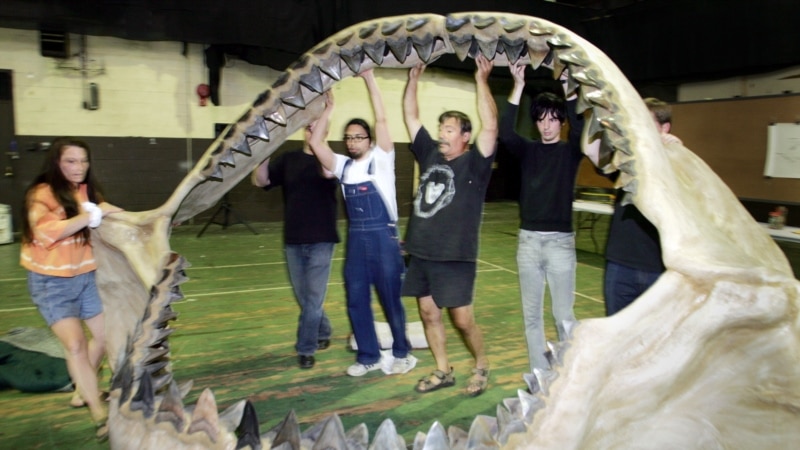
Australian scientists have discovered a deep-ocean sharks’ graveyard containing the fossilized teeth of the ancient ancestor of the megalodon shark. They have also found a new species of shark. The discoveries were made across two expeditions on the research vessel (RV) Investigator, which is operated by Australia’s national science agency, the Commonwealth Scientific and Industrial Research Organization, or the CSIRO. It has explored Australia's newest marine sanctuaries; the Cocos (Keeling) Islands Marine Park in the remote Indian Ocean, and the Gascoyne Marine Park off the coast of Western Australia. At depths of more than 5 kilometers, researchers have recovered remnants of ancient and modern sharks, including the teeth of a 12-meter-long shark that was the closest known relative to the mighty megalodon. It’s considered to have been one of the most powerful predators ever, but it died out about 3.5 million years ago. The voyage’s chief scientist, John Keesing, told VOA that significant discoveries have been made. “From the greatest depths, so this is around 5,000 meters, we have trawled up recent and fossil sharks' teeth,” he said. “So, the ones we have found on this trip are from great white sharks and mako sharks. Out of the Cocos (Keeling) Islands they found similar to that but in addition, fossil teeth from a relative of one of the largest-ever sharks, the megalodon. So, that is the ancestor of modern sharks.” The search areas in the Indian Ocean are known to have some of the world’s most diverse marine life, but researchers believe much of what lies beneath the waves is a mystery. A new type of small striped shark was also discovered in the Gascoyne Marine Park. Scientists have said it is “unique to Australia.” They have yet to formally describe it or give it a name. The CSIRO has said that about a third of the species of marine life collected on biodiversity survey voyages could well be new to science. The RV Investigator has a crew of 54, 35 of whom are scientists. The research vessel is operational 24 hours a day.
Most Read